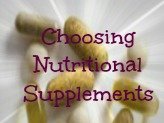Vitamin E Health Benefits
Vitamin E acts as an antioxidant, protecting vitamins A and C, red blood cells and essential fatty acids from destruction.
Research from a decade ago suggested that taking antioxidant supplements might help prevent heart disease and cancer.
Many recent studies show a link between regularly eating antioxidant-rich fruits and vegetables and a lower risk for heart disease, cancer and several other diseases.
Antioxidants protect cells from the damaging effects of free radicals, which are molecules that contain an unshared electron. Free radicals damage cells and might contribute to the development of cardiovascular disease and cancer.
Absorption of vitamin-E from the intestine depends on adequate pancreatic function, biliary secretion, and micelle formation.
Conditions for absorption are like those for dietary lipid, that is, efficient emulsification, solubilisation within mixed bile salt micelles, uptake by enterocytes, and secretion into the circulation via the lymphatic system.
About 60 percent of vitamin-E in the diet comes from vegetable oil or products made with vegetable oils.
Therefore, good food sources include vegetable oils and margarines, fruits, vegetables, grains, nuts, seeds and fortified cereals.
Facts you Should Know
- Prominent researches recognize that an average healthy female should take 400 IU of vitamin-E in a day and men 600 IU a day.
- Inorganic iron may destroy this vitamin. To prevent this, separate the two in the stomach by an interval of 8 to 9 hours. However, the organic iron present in iron rich foods like spinach can be taken at the same time with vitamin-E.
- Vitamin-E is absorbed better when taken together with food. Hence take it when having meals.
Vitamin E Deficiency
A deficiency of vitamin-E can affect the nervous system and the eyes. It can also cause a form of hemolytic anemia.
Deficiency of this nutrient is very rare, but can occur in premature infants. People who are unable to absorb fat properly may as well develop vitamin-E deficiency. This is because this is a fat-soluble vitamin and needs dietary fat to be absorbed.
Symptoms of serious deficiency include muscle weakness, loss of muscle mass, abnormal eye movements, impaired vision, and unsteady gait.
People who do not get enough vitamin-E may have higher risks for heart disease and cancer.
What about Supplements?
Foods can supply the recommended amount of vitamin-E for good health. However, many people choose to take supplements since they are readily available out there.
If you are on medication, talk with your doctor before deciding to take a supplement. The doctor can tell you how much to take and if there may be interactions with other drugs or supplements that you take.
Vitamin Related Articles
Return from Vitamin E
to Vitamin Supplements
Return to Nutritional Supplements Home








New! Comments
Have your say about what you just read! Leave me a comment in the box below.